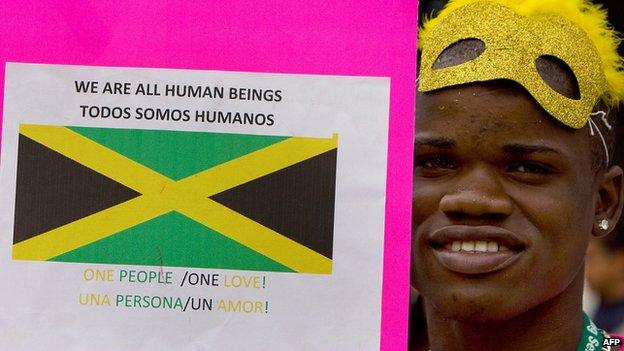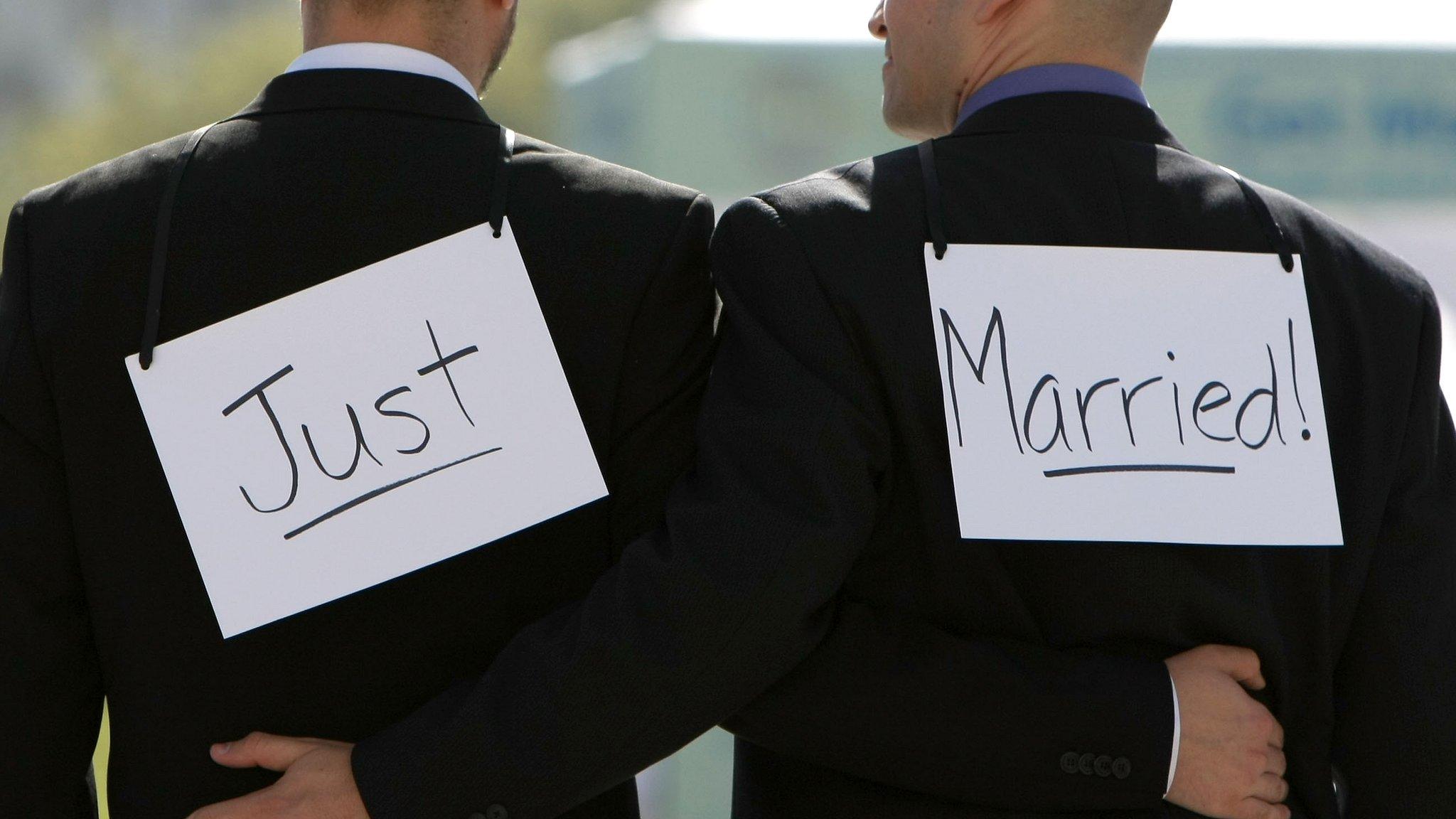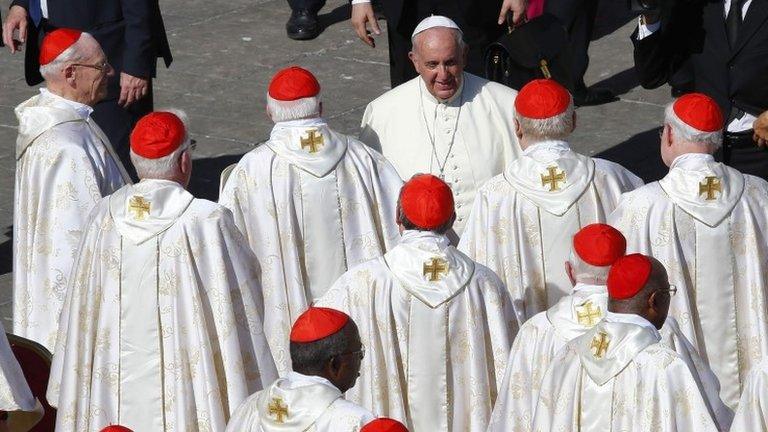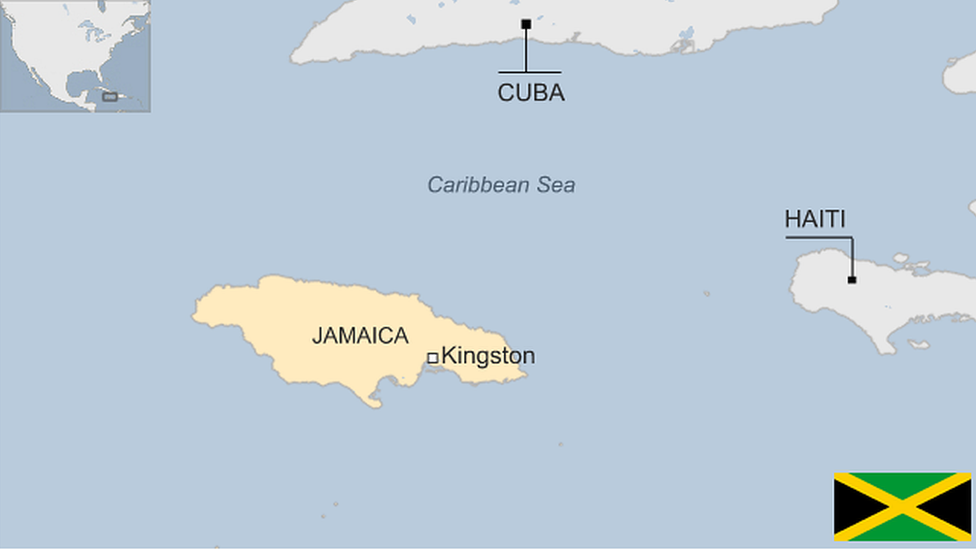Human Rights Watch: LGBT Jamaicans are targets of violence
- Published

Human Rights Watch said LGBT Jamaicans were victims of violence because of their actual or perceived sexual orientation or identity
Lesbian, gay, bisexual and transgender (LGBT) people in Jamaica face "intolerable levels of violence and cannot rely on the police" for protection, Human Rights Watch said.
In a report, the rights group also documented cases of LGBT Jamaicans being refused housing or employment.
The New York-based organisation said police investigations were "often inadequate or lacking altogether".
The Caribbean island has a reputation of intolerance towards LGBT people.
Correspondents say many residents in the largely Christian country consider homosexuality to be sinful.
'Beaten or killed'
Human Rights Watch said: "LGBT Jamaicans are vulnerable to both physical and sexual violence and many live in constant fear.
"They are taunted, threatened, fired from their jobs, thrown out of their homes, or worse: beaten, stoned, raped, or killed."
Last year, a transgender teenager, Dwayne Jones, was killed by a crowd outside the Jamaican city of Montego Bay, but the murder remains unsolved.
In its report titled "Not Safe at Home", external, the rights group documented 56 cases of violence in which victims reported they were targeted because of their actual or perceived sexual orientation or identity.
It called on the Jamaican government to strike down anti-sodomy laws and take measures to protect LGBT Jamaicans from discrimination and violence.
"In the past decade the Jamaican police have taken some steps to address the scourge of homophobic violence, but clearly these steps are not enough," said Graeme Reid, LGBT rights director at Human Rights Watch.
"So long as discriminatory laws remain in place, piecemeal measures will never be adequate.
"The authorities from the prime minister on down need to call a halt to the violence and discrimination, prosecute anyone responsible, and get homophobic laws off the books," Mr Reid added.
Jamaica is among many English-speaking Caribbean nations with anti-sodomy laws.
The report also documented cases of discrimination by government institutions, including health care facilities and in the private sector.
"Families and neighbours often drive LGBT people from their homes and communities.
"Landlords refuse to rent to LGBT people; health providers stigmatise them when they seek services; and employers arbitrarily fire them," the rights group said in a press release, external.
The Human Rights Watch report was the result of five weeks of field research in Jamaica in April and June 2013.
- Published6 June 2014

- Published19 October 2014

- Published2 April 2024
